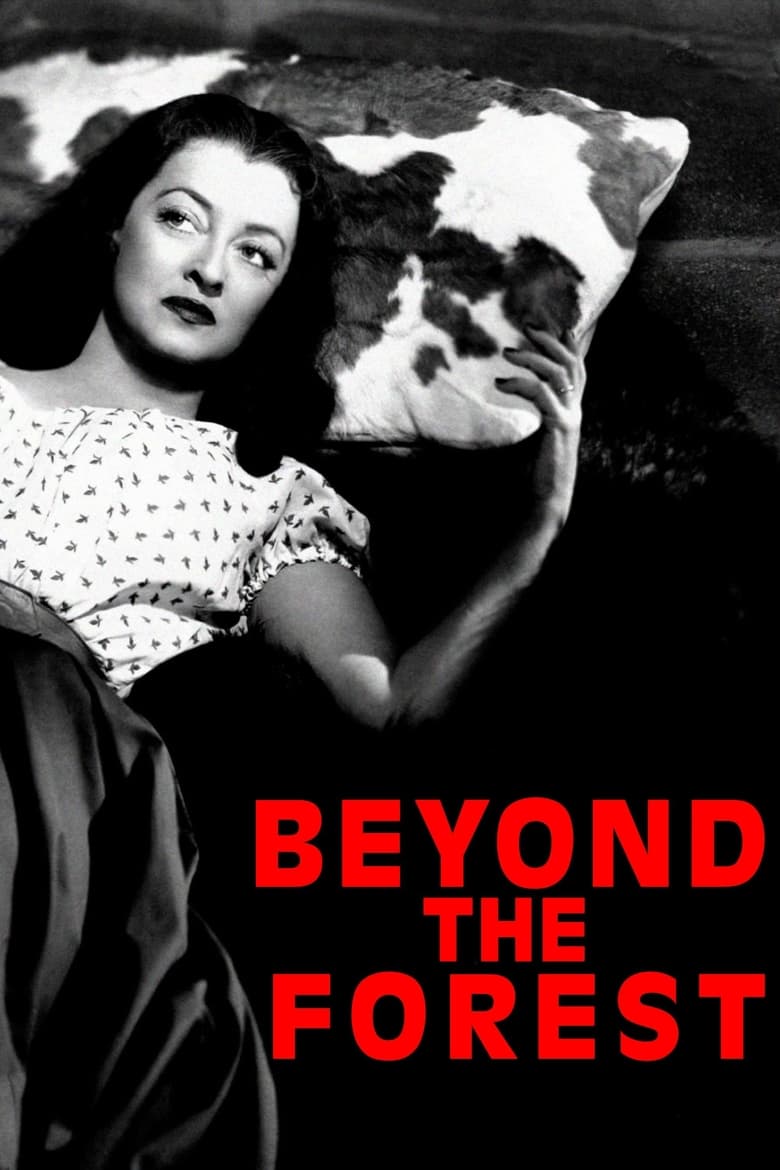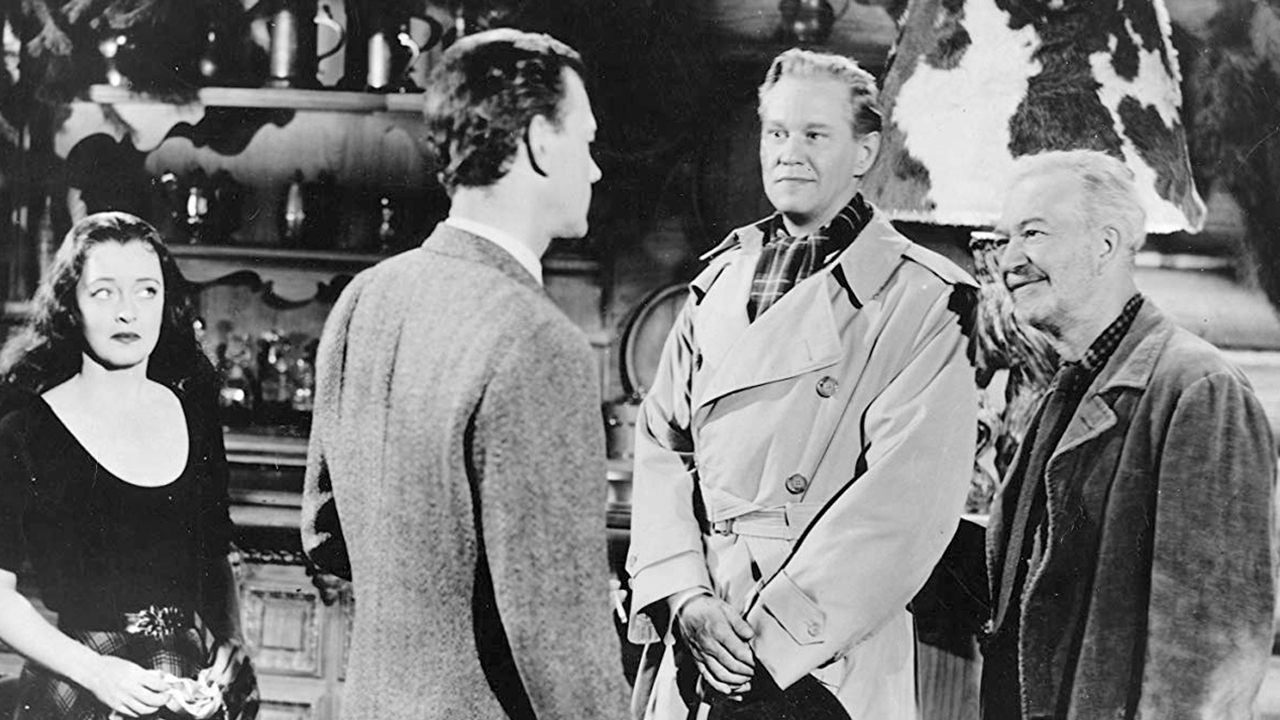You don't like life!
Beyond the Forest is directed by King Vidor and written by Lenore J. Coffee and Stuart Engstrand. It stars Bette Davis, Joseph Cotton, David Brian, Ruth Roman, Minor Watson and Regis Toomey. Music is by Max Steiner and cinematography by Robert Burks.
Resentful of her small-town life, Rosa Moline (Davis), a married woman, schemes to run off with a rich businessman - and she will do anything to achieve her goals...
Whilst not being on the same divisive page as something like Johnny Guitar, King Vidor's picture treads the same pathway to claims of camp and feverish staging. Davis is clearly miscast and too old for the role, whilst she overacts accordingly to either delight her fans - or irritate film fans after a noirish pot boiler of some substance. It's a tough call, and you really have to point the finger at Vidor for not reining Davis in, but if in the zone for a bit of Bovary histrionics tinged with noir flavours this has much to offer.
The pros and cons of small town Americana are vividly brought to life here, as is the central focus of a woman out of her dreams. Metaphors are rife to run in conjunction with the psychological imbalance of Rosa's mind, be it the mill furnace that lights up the sky at frequent intervals, or the steam locomotive that thunders through the centre of town to take folk off to the big city of Chicago, the aural smarts are superbly inserted by Vidor.
Using flashback as a starting point, Vidor firmly enters a noir realm, which continues throughout as he is aided considerably by Burks' photography. One of Hitchcock's main cinematographers of choice, it's a real pity that Burks didn't get hired for more noir ventures in the 50s. His work here is superb, low lights and side lights come to the fore in the final third as the femme fatale axis of story reaches a potent finale. Thus as Steiner rumbles away with his shock and awe, the pic is a tech credit force.
Sadly there's some fault lines to be irked by. Roman is utterly wasted in a pointless role, there's a Native American house maid character (Donna Drake) that's the focus of some unsensitive era treatments that's sole purpose seems to be just to make Rosa out as more of a git than already established. While Toomey and Watson (the latter a key character) are badly under used.
However, whilst not jumping on the "it's a masterpiece" bandwagon, this is a film of many filmic pleasures - perversely so me thinks... 7/10


